Affiliate links on Android Authority may earn us a commission. Learn more.
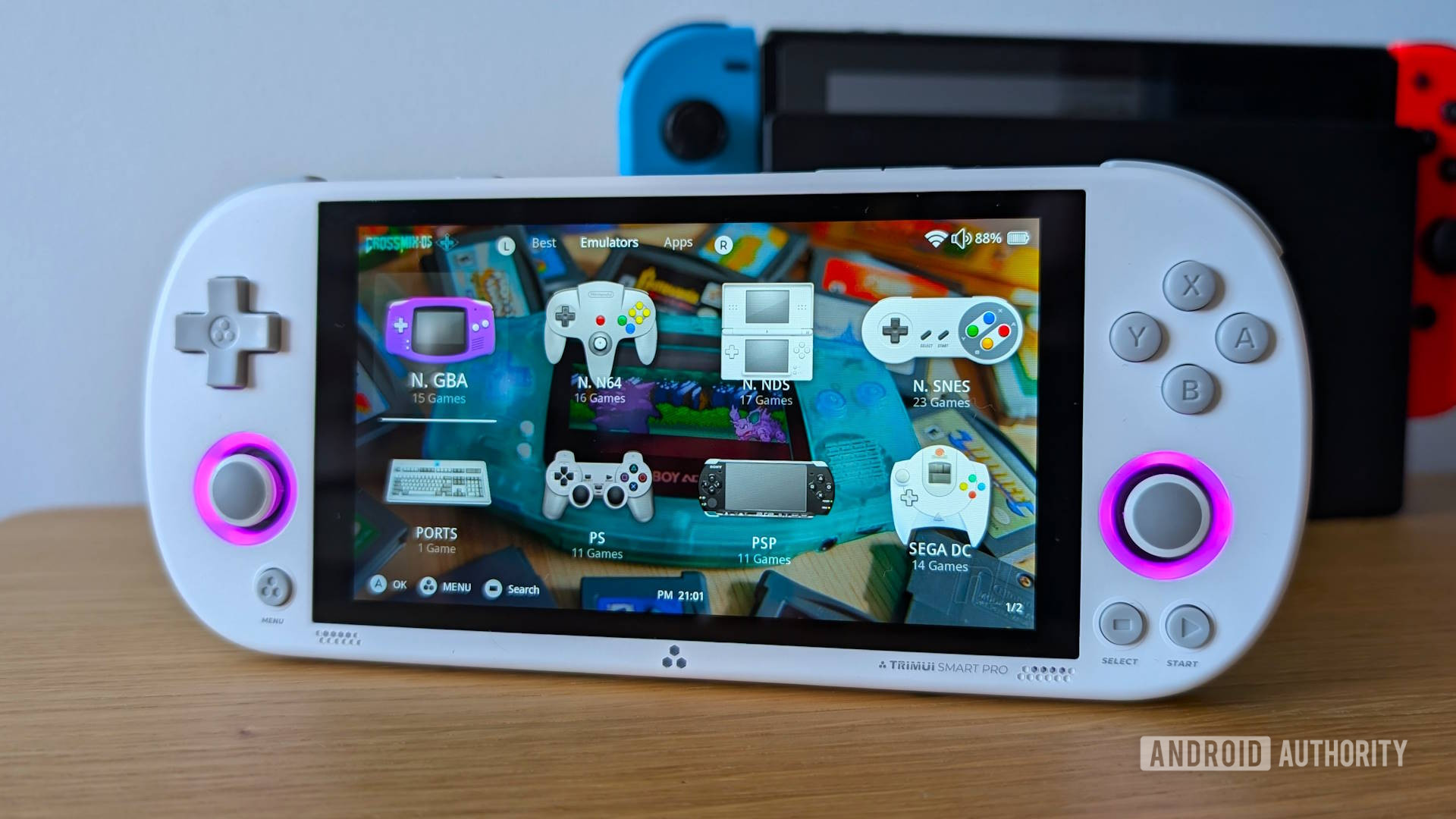
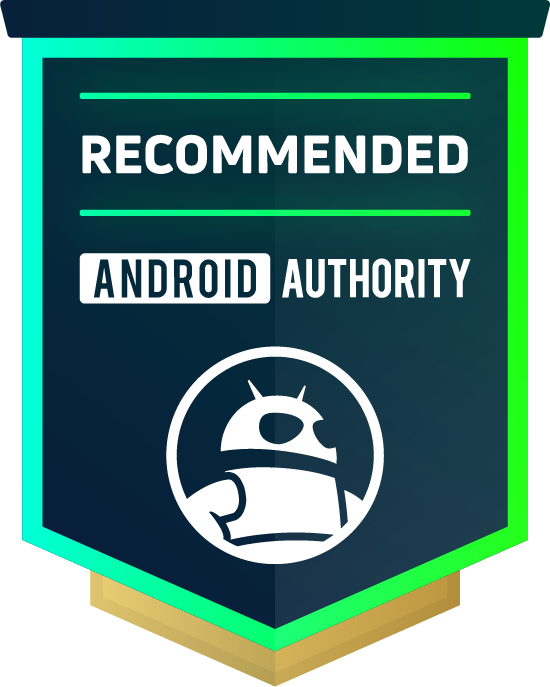

TrimUI Smart Pro
MSRP: $69.99
What we like
What we don't like

TrimUI Smart Pro
As someone who grew up playing retro games, I was over the moon when I first found out I could install emulators on my Android phone years ago. What could possibly be better than playing the classics on the same device I use dozens of times a day for every other task?
Well, it turns out that a smooth rectangle isn’t the best for gaming. I still dabbled in emulation, but in general, I found myself favoring native Android games over my favorite retro titles.
So on a whim, I bought a cheap gaming handheld, the TrimUI Smart Pro ($95.99 at Amazon), and it’s been a transformative experience. At this point, I have uninstalled every emulator on my phone in favor of an incredibly simple Linux device that cost me just under $50 on sale.
The perfect retro companion
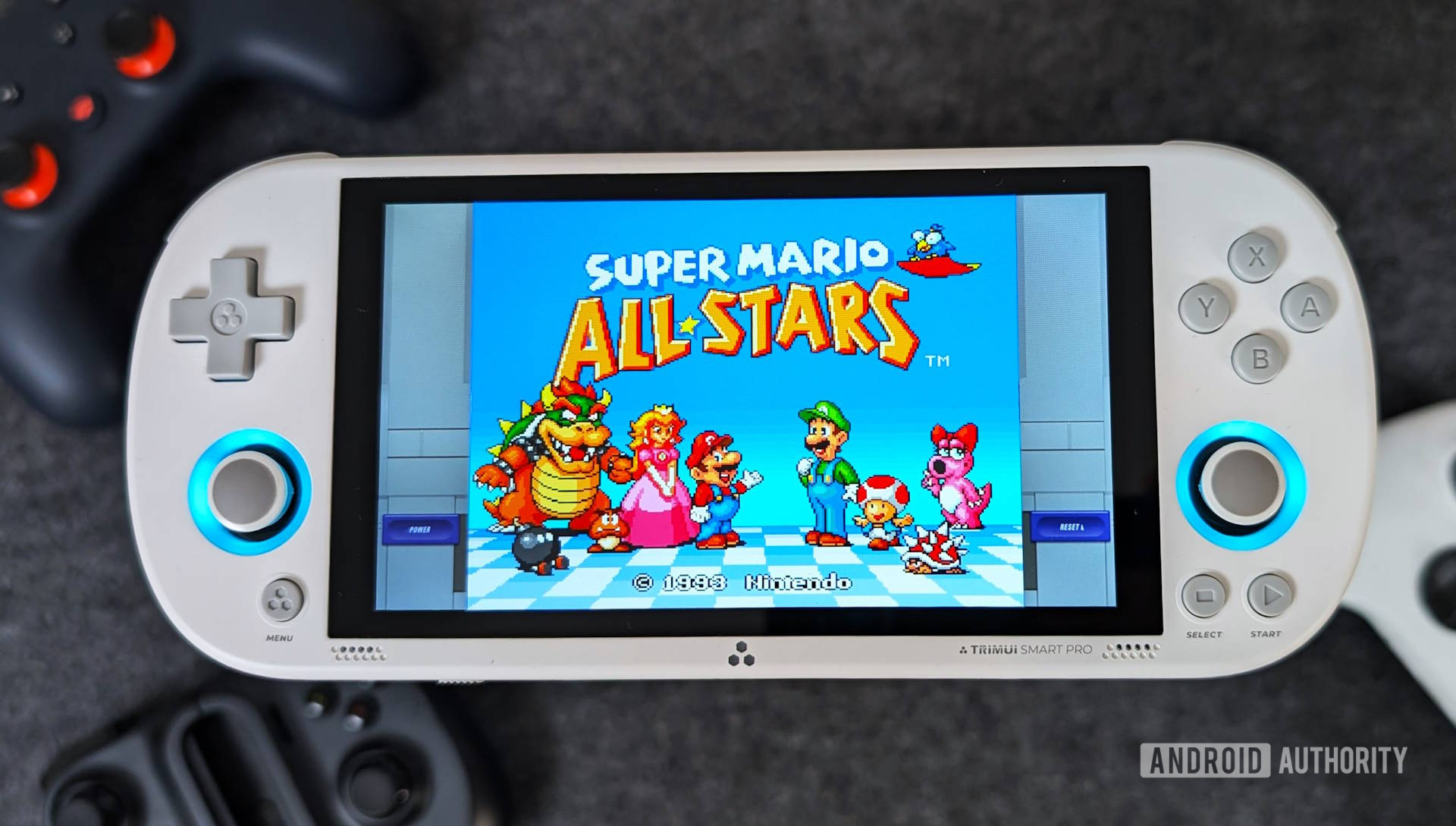
While my phone runs games far better than my new budget handheld, at the end of the day, it’s just a phone. I don’t like playing retro games with touchscreen controls, so I usually attach a Razer Kishi or connect a Bluetooth controller. This is convenient, but it adds friction to the experience. To make matters worse, my sessions are often interrupted by notifications or the pull of other addictive apps.
Now, I should point out that I already have an ASUS ROG Ally, but for me, that feels like a much heavier experience, both on the hardware and software side. The limitations of Windows mean I can’t really pick it up and play for short periods of time, and the lack of a sleep state for emulation adds even more friction than my phone. It’s an incredible device, but it’s overkill for retro gaming.
So when the TrimUI Smart Pro was on sale for $45 earlier this month, I took a chance. Even if I only played for a few hours a week, it was easy to justify the expense. After all, it’s cheaper than a Razer Kishi and most other mobile-first controllers. It’s actually even cheaper than my phone case!
Right from the start, it felt much more premium than its price would imply. The overall build quality is great, with nice buttons and a decent d-pad. The joysticks are another matter. There’s no L3 or R3 support, and they’re sunk deep into the body of the device. This makes them pretty uncomfortable to use, but also easier to pocket.
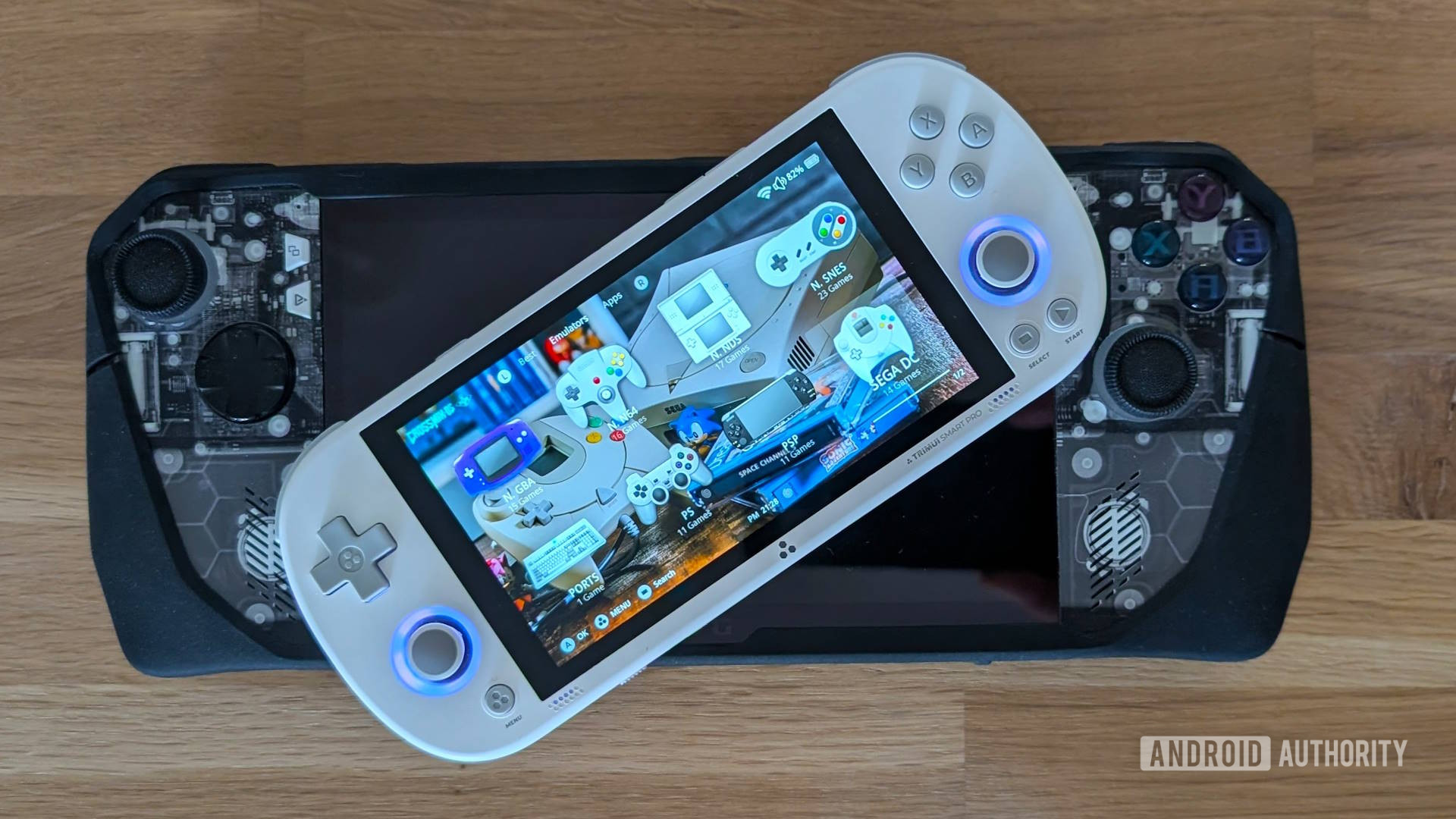
When it comes to retro gaming, this budget device delivers. The Allwinner A133 Plus chipset is incredibly weak, but the low overhead provided by the Linux-based system means I could emulate everything up to and including the PlayStation and Nintendo 64 era (with a few exceptions). That’s more than I could ask for from a handheld this cheap.
I also picked this device because of the 16:9 screen. It gets plenty bright, and the wider form factor is much more comfortable for me than vertical handhelds. It’s roughly the size and shape of a phone, but much lighter and PS Vita-shaped.
However, for most of my favorite games, the wider aspect ratio means dealing with black bars, but this didn’t really bother me. Certain titles have widescreen hacks to take full advantage of it, but my motivations were mostly related to streaming. Using the Moonlight app (which is preinstalled), I can stream games from my gaming desktop. It’s not as easy to use as Steam Link, but it does allow me to play modern games on a small, lightweight device. Just be aware that it only has Wi-Fi 4 support, so you probably won’t take home any victories in competitive online games.
It's ready to play out of the box, but I made some simple improvements.
The TrimUI Smart Pro comes ready to play out of the box, but I made a few improvements. I swapped out the (terrible) stock microSD card for a larger, branded model and changed the stock UI to CrossMix OS. This was as simple as loading some files onto the new microSD card, which I did anyway with my ROMs. The entire process took less than an hour.
The result is a very simple but comfortable device with a great front end that allows me to play my favorite retro games. Since it’s so small, I can take it wherever I want. And since it’s so cheap, I don’t have to be precious about it.
The limitations of Linux
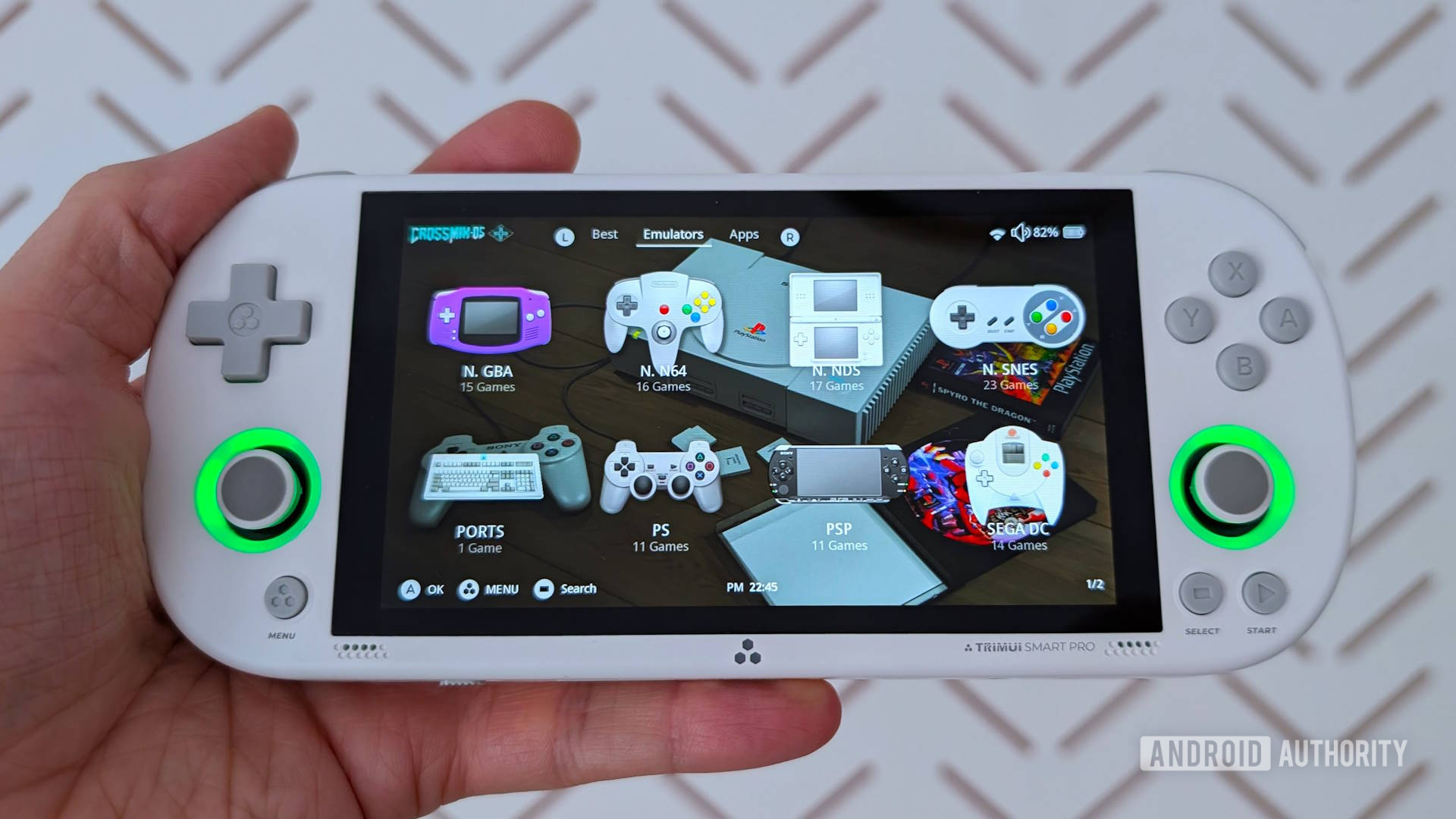
While I absolutely love the TrimUI Smart Pro, there are some limitations that don’t come from its chipset. Linux, while light, quick, and (most importantly) free, doesn’t have the same kind of developer support as Windows and Android. The device comes set up with RetroArch and a ton of Libretro cores, but often, standalone emulators offer better performance.
For example, on Android the DraStic Nintendo DS emulator is an absolute wonder. It can run games on any old potato phone, despite being effectively abandoned by its developer for half a decade. Unlike many other emulators, it’s closed-source, so no one can create a fork with new features, like we’ve seen in the wake of the Nintendo 3DS emulator Citra’s closure with Azahar emulator and others.
PortMaster helps make up for a lack of Android games.
The other obvious downside is the lack of native Android games. The list of controller-compatible Android games grows longer each month, especially if you have a Netflix subscription to access Netflix-published games. Other mobile-first games that play vertically are a pretty bad experience on gaming handhelds, though, and they make up the vast majority of the Android catalog.
Plus, the TrimUI Smart Pro somewhat makes up for this with PortMaster compatibility. If you’ve never heard of it, PortMaster is a list of Linux ports designed to run on handheld gaming devices. Most of these are ported by the community and require a full version of the game to work, similar to ROM decompilations like Harbour Master 64’s excellent The Legend of Zelda: Ocarina of Time and Majora’s Mask ports (which are also supported in PortMaster).
There’s a pretty long list of these games, but a few of my favorites are Celeste, Stardew Valley, Half-Life, TMNT: Shredder’s Revenge, Balatro, Fallout 1 and 2, Spelunky… I could go on for days. Since these are native Linux games, they run at fantastic speeds, often at 16:9. Combined with all of the retro games this thing can emulate, you’ll have no shortage of games to play, even without Android games.
A blossoming budget industry
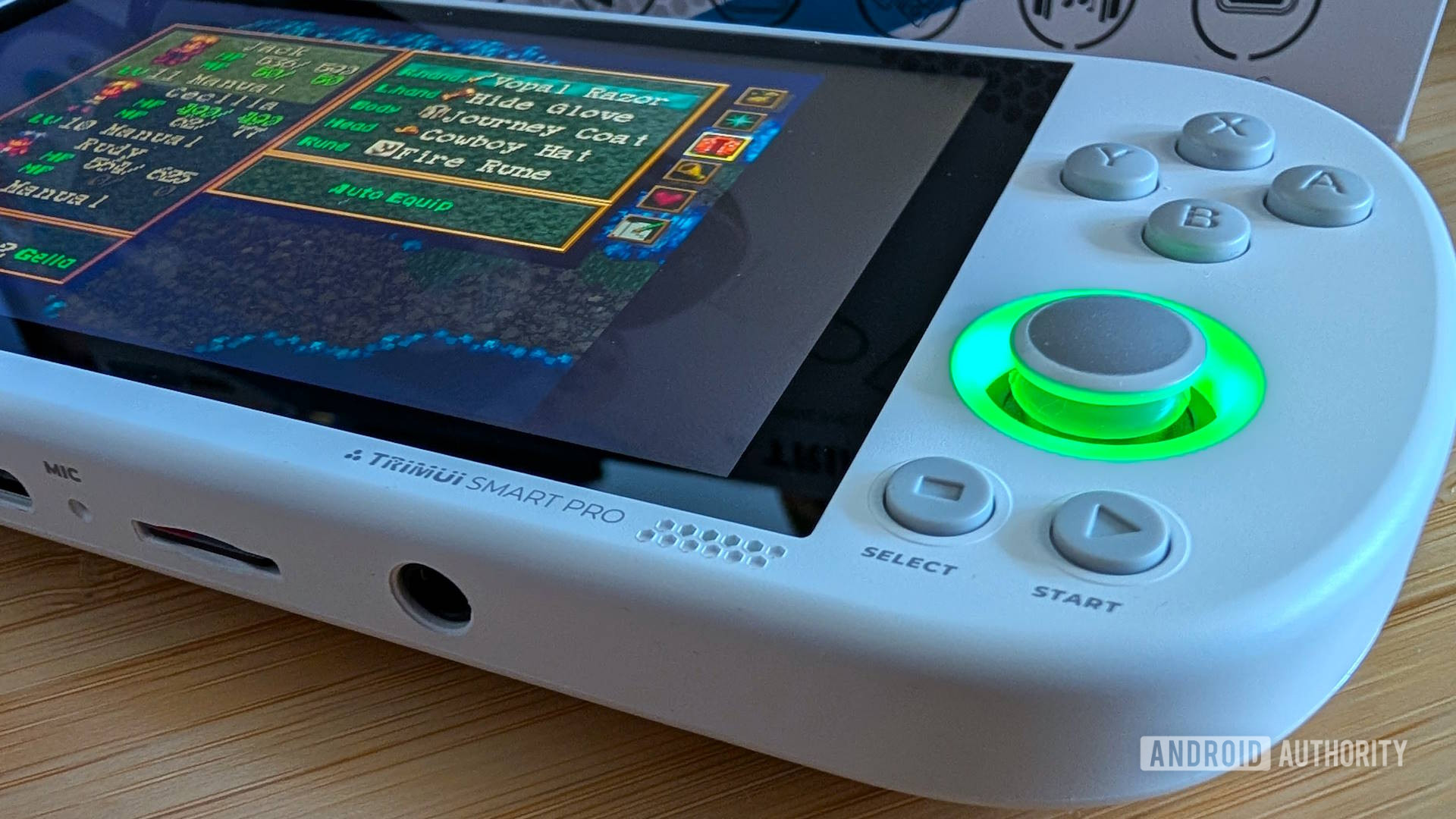
For me, the TrimUI Smart Pro ($95.99 at Amazon) has become the perfect budget device, but there are far more options to choose from. You don’t even have to look to other brands, with the TrimUI Brick ($65.99 at AliExpress) offering the same basic performance in a vertical format. This resembles a GameBoy with a smaller 4:3 display, which might be more comfortable for some.
The other fantastic option in this price range is the Miyoo Mini Plus ($79.99 at Amazon). It’s another GameBoy-like device around the same $50 price range, and it’s got a huge community behind it. That means that like the TrimUI Smart Pro, you can get more out of it if you invest a little time in improving the stock experience.
How much would you spend/have you spent on a handheld gaming device?
Beyond that it’s really all Android-based handhelds that cost two times as much or more. The Retroid Pocket 2S ($159 at Amazon) is where you’ll want to start here, and for the money, you’ll get a more powerful device that can also play GameCube and PS2 games.
You can certainly spend a lot more than this for niceties like better performance or an OLED screen, but if you’re just dipping your toes into the deep rabbit hole of handheld gaming devices, I highly recommend starting cheap. You might be surprised just how transformative these devices can be for your gaming habits.

